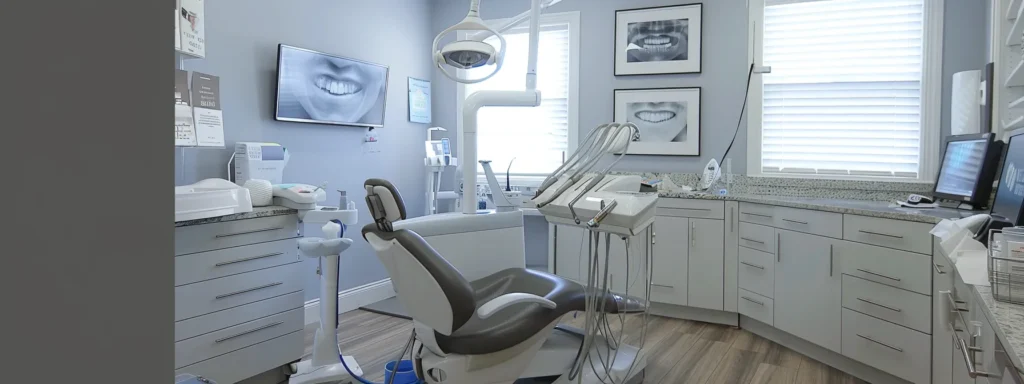A tooth abscess poses a serious risk to your oral health and requires immediate attention to stop its progression. This guide highlights the importance of quick action, the dangers of waiting, and the strategies to manage the condition effectively.
Recognizing symptoms early is essential for preventing complications. Early detection of tooth abscess symptoms, such as pain, swelling, and sensitivity, prevents further problems and makes recovery easier. For example, noticing slight swelling or ongoing pain should prompt you to see a dentist right away.
Ignoring symptoms can make the infection worse, leading to more complex health issues. A small, untreated abscess can cause pain that gets much worse, forcing you to face extensive treatments that could have been avoided through early care.
Addressing a tooth abscess requires a strategic approach, including professional dental treatment and carefully following post-care instructions. Early professional assessment and appropriate treatment, such as drainage or antibiotics, can prevent the spread of the infection and protect your oral health.
Understanding What a Tooth Abscess Really Means
A tooth abscess contains a dangerous infection, often starting with mild symptoms that can quickly become severe health concerns. Recognizing these early signs is crucial for preventing life-threatening outcomes and ensuring oral health.
A tooth’s sharp pain when exposed to hot or cold substances often serves as an early warning sign of an abscess. This can happen when drinking a hot beverage or eating ice cream, signaling the need for further dental investigation to confirm if an infection is present.
When throbbing discomfort in the teeth or gums becomes a constant part of your day, it’s a red flag that an abscess may have developed. Such ongoing pain requires a dental assessment to prevent the situation from getting worse.
Understanding the warning signs helps you recognize when to seek immediate care:
- Temperature Sensitivity: Sharp pain when consuming hot or cold foods and drinks indicates potential infection
- Constant Throbbing Pain: Persistent, rhythmic pain that doesn’t go away with over-the-counter pain relievers
- Unusual Swelling: Swelling of the face, gums, or jaw that appears without a clear cause
- Bad Taste or Smell: Unpleasant taste in your mouth or bad breath that doesn’t improve with brushing
Swelling of the face or gums, particularly when it appears without a clear cause, should be treated as a dental emergency. This symptom, which might indicate an abscess, needs immediate examination to diagnose the infection and begin the appropriate treatment.
The Serious Risks of Ignoring an Abscess
Failing to address a tooth abscess quickly can result in serious outcomes, including life-threatening infections throughout your body. Understanding the full scope of complications that can arise from an untreated abscess shows why quick dental attention is so important.
When an abscess is ignored, the infection can spread beyond your mouth and invade other parts of your body. This potentially creates a pathway to sepsis, a life-threatening response to infection that demands emergency medical intervention to prevent further illness or death.
An untreated abscess can cause severe damage to the tooth’s structure, ultimately leading to damage that can’t be repaired. Without timely dental care, this destruction can require the removal of the tooth, an outcome that could have been prevented with earlier treatment.
Oral infections don’t stay isolated in your mouth – they have the potential to make other medical conditions worse. An untreated abscess may not only complicate existing health problems but can also be the start of new health issues, further emphasizing the importance of prompt dental intervention.
How Dentists Diagnose and Treat Abscesses
Effectively addressing a tooth abscess requires a careful approach to diagnose its source correctly and select an appropriate course of treatment. Dental professionals face multiple challenges in this process, from proper identification to post-treatment care.
Dentists must tell the difference between symptoms caused by abscesses and those from other oral health issues. For instance, while both an abscess and a cavity might cause tooth pain, the treatment for each is very different and requires specific approaches.
Once an abscess is confirmed, dentists must choose between various treatment options, such as root canals, which save the tooth, or tooth extractions, which completely remove it. This choice depends on how severe the abscess is and the condition of the tooth.
Effective post-treatment care is crucial to recovery. After an abscess is treated, patients must follow careful oral hygiene practices and possibly take prescribed medications to prevent reinfection and ensure complete healing of the affected area.
Recognizing When It’s a Dental Emergency
Identifying when a dental issue becomes an emergency is vital for ensuring timely and potentially life-saving treatment. Tooth abscesses, in particular, require quick recognition and action to prevent severe complications.
Certain symptoms serve as red flags signaling an urgent need for medical attention. These warning signs include intense, persistent pain that disrupts daily activities, visible swelling that affects speech or chewing, and any difficulty breathing. These symptoms suggest that the abscess may have reached a critical state, requiring emergency dental care.
It’s critical to recognize when to seek professional help. If there’s a dramatic worsening of the abscess symptoms, or if basic self-care measures fail to provide relief, seeking immediate medical attention becomes essential:
- Severe Pain: Intense pain that doesn’t respond to over-the-counter pain medications and disrupts sleep or daily activities
- Facial Swelling: Noticeable swelling of the face, jaw, or neck that affects your ability to speak or swallow
- Breathing Difficulties: Any trouble breathing or swallowing, which could indicate the infection is spreading
- High Fever: Body temperature above 101°F (38.3°C) along with dental pain suggests systemic infection
After identifying severe symptoms, you should contact a dental professional without delay. While waiting for the appointment, measures like rinsing with salt water can offer temporary relief, but under no circumstances should professional care be delayed in favor of home treatment alone.

How Your Dentist Educates and Treats You
Dentists serve a dual role as both caregivers and educators in the prevention and treatment of tooth abscesses. They are responsible for giving patients the critical knowledge needed to treat these serious infections promptly and effectively.
It falls upon dental professionals to clear up common misconceptions surrounding tooth abscesses, such as the false belief that pain relief means the infection is healed. They must provide clear explanations about the condition’s severity, emphasizing that even a painless abscess requires urgent care to prevent the infection from returning and causing more severe health problems.
Highlighting the urgency of treating tooth abscesses is an important part of a dentist’s role. By communicating this necessity effectively, dentists emphasize the risks of delaying treatment, such as the potential for infection spread and increased duration and cost of later treatments, thus advocating for their patients’ overall well-being.
Beyond the initial education, dentists must guide patients through the treatment process, ensuring they understand the potential procedures and their impacts. This guidance helps make the clinical approach less mysterious, encourages timely treatment decisions, and ultimately leads to better outcomes for patients dealing with dental abscesses.
Preventing Tooth Abscesses Before They Start
To prevent the development of tooth abscesses, a comprehensive approach centered around hygiene, awareness, and professional care is essential. Adopting these preventive measures can significantly reduce the risk of abscesses and promote lasting oral health.
Daily oral care routines should include thorough brushing and flossing, along with the use of antimicrobial mouthwashes when appropriate. Such consistent practices remove food particles and bacterial plaque, the primary causes of abscess formation, and help maintain a clean and healthy oral environment.
Awareness of initial abscess warning signs, such as minor gum tenderness, occasional toothaches, or unusual tastes, allows for early interventions. Recognizing these subtle clues and responding with appropriate dental care can prevent the progression to full-blown infections that require more invasive treatment.
Twice-yearly dental visits are critical in the early identification and treatment of factors contributing to abscess development. During routine examinations, dentists can identify and treat developing concerns, such as cavities or minor gum infections, before they escalate into serious abscess complications.
Don’t Wait – Your Health Depends on Quick Action
An untreated tooth abscess poses risks that go far beyond mere oral discomfort, potentially threatening your overall health. It’s essential to quickly identify and treat this condition to prevent serious health issues and maintain comprehensive well-being.
It’s crucial to understand that a tooth abscess is not a minor problem. As an infection site for bacteria, it presents an immediate threat to teeth and gums that, if untreated, can escalate to a more severe health situation. Quick treatment preserves oral health and prevents later, more complex dental procedures.
At Dynamic Family Dentistry, we understand that tooth abscesses are serious dental emergencies that require immediate attention. Our experienced team is committed to providing prompt, effective treatment to stop infections before they spread and cause more serious health complications. Don’t wait if you’re experiencing tooth pain, swelling, or other abscess symptoms.
Ready to protect your health from the serious risks of tooth abscesses? Contact Dynamic Family Dentistry immediately if you’re experiencing any symptoms of a tooth abscess. Our emergency dental services are available to provide the urgent care you need to stop the infection and preserve your oral and overall health.
Book Your Consultation Today!
Dr. Bethaney B. Brenner DMD
8 Milford St, Burlington, CT 06013
Frequently Asked Questions
What is a tooth abscess?
A tooth abscess is a painful infection at the root of a tooth or between the gum and a tooth. It’s important to treat it early to avoid complications.
What are the symptoms of a tooth abscess?
Tooth abscess symptoms include severe toothache, sensitivity to temperature, swollen gums, and a bad taste in your mouth. If you have these symptoms, see a dentist immediately.
How is a tooth abscess treated?
Treatment involves draining the abscess, sometimes followed by a root canal or tooth extraction, depending on the severity. Your dentist will provide the safest treatment option for your situation.
Related Articles





